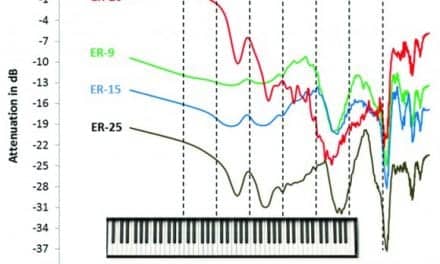Chicago — Research published in the November issue of Archives of Otolaryngology–Head & Neck Surgery, one of the JAMA/Archives journals, shows that patients who receive radiation therapy for head and neck cancer are more likely to experience hearing loss and to be more disabled by its effects than those who do not receive such treatment.
Head and neck cancer is the sixth most common type of cancer worldwide, according to background information in the article. Treatment methods include surgery, chemotherapy and radiation therapy, either alone or in combination.
Radiation therapy is increasingly being used on head and neck tumors, and close to 100 percent of the radiation delivered may reach the structures of the auditory system, the authors note.
The study was comprised of 282 individuals, including 141 who had undergone radiation therapy for head and neck tumors and 141 controls, who had never undergone a treatment that placed their hearing at risk. All participants underwent hearing evaluations and completed questionnaires regarding how any hearing loss they had experienced was affecting their lives.
Hearing loss was detected in 102 (72.3 percent) of the participants who were exposed to radiation therapy and 69 (48.9 percent) of those in the control group. Hearing loss was mostly sensorineural (resulting from disorders or damage involving the nerves or the inner ear) as opposed to conductive (resulting from interference in sound transmission, usually involving the outer or middle ear). Severe or profound hearing loss occurred in 6.4 percent of right ears and 8.5 percent of left ears in the radiation-treated group, as compared with 0.7 percent in the right ears and 1.4 percent in the left ears of control group participants.
Participants in the radiation treatment group were more likely to be severely impaired by hearing loss (19.1 percent, vs. 2.8 percent in the control group). “This indicates that, when present, hearing losses were substantially greater and more incapacitating after the radiotherapy,” the authors write.
Another potential side effect of the hearing loss: Depression. Study participants whose hearing loss was untreated were more likely to feel lonely, depressed, worried, anxious or paranoid, had fewer social activities and were less able to process information about their environment.
The abstract and full article ""Hearing Loss and Complaint in Patients With Head and Neck Cancer Treated With Radiotherapy" are available for download here.



